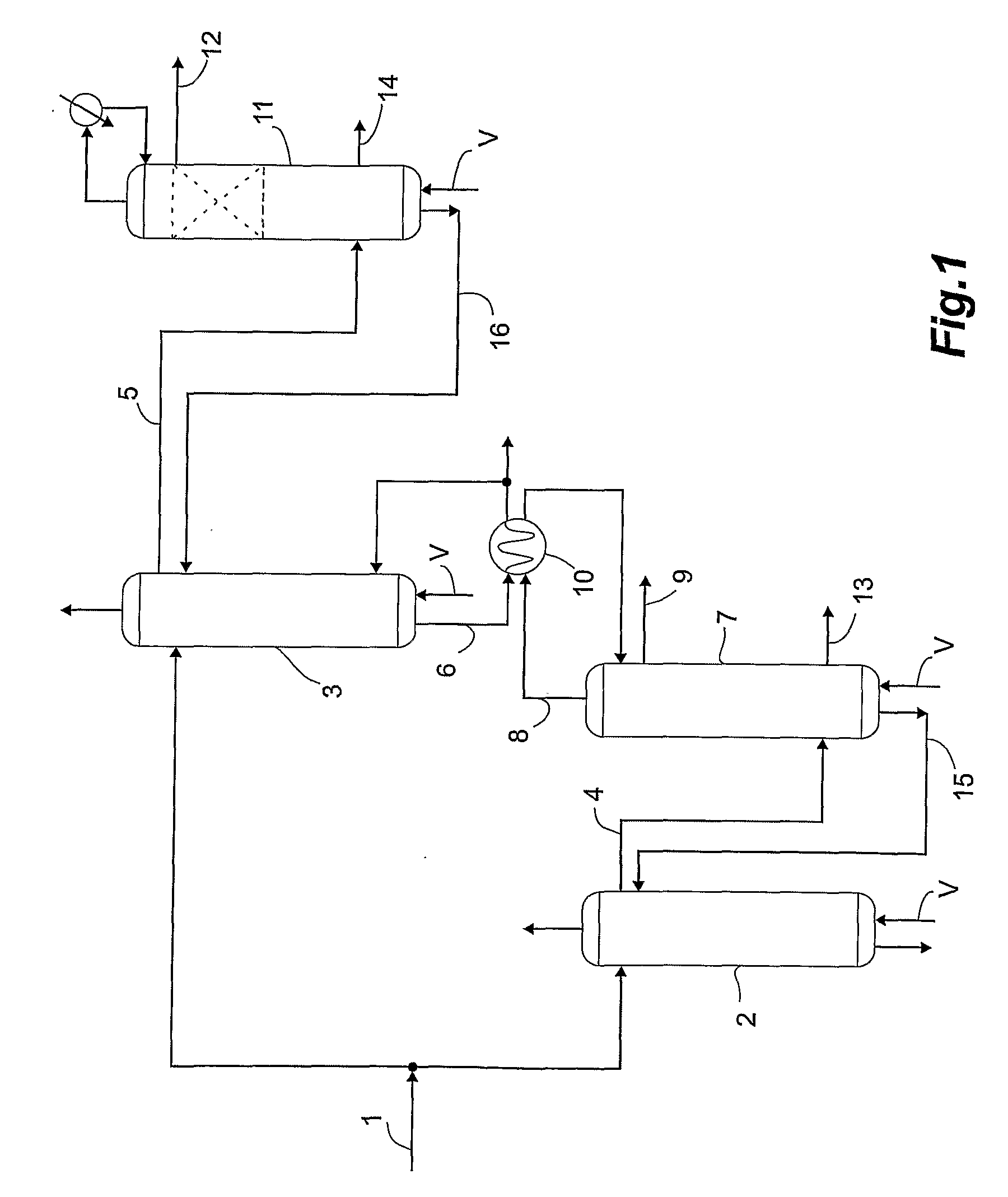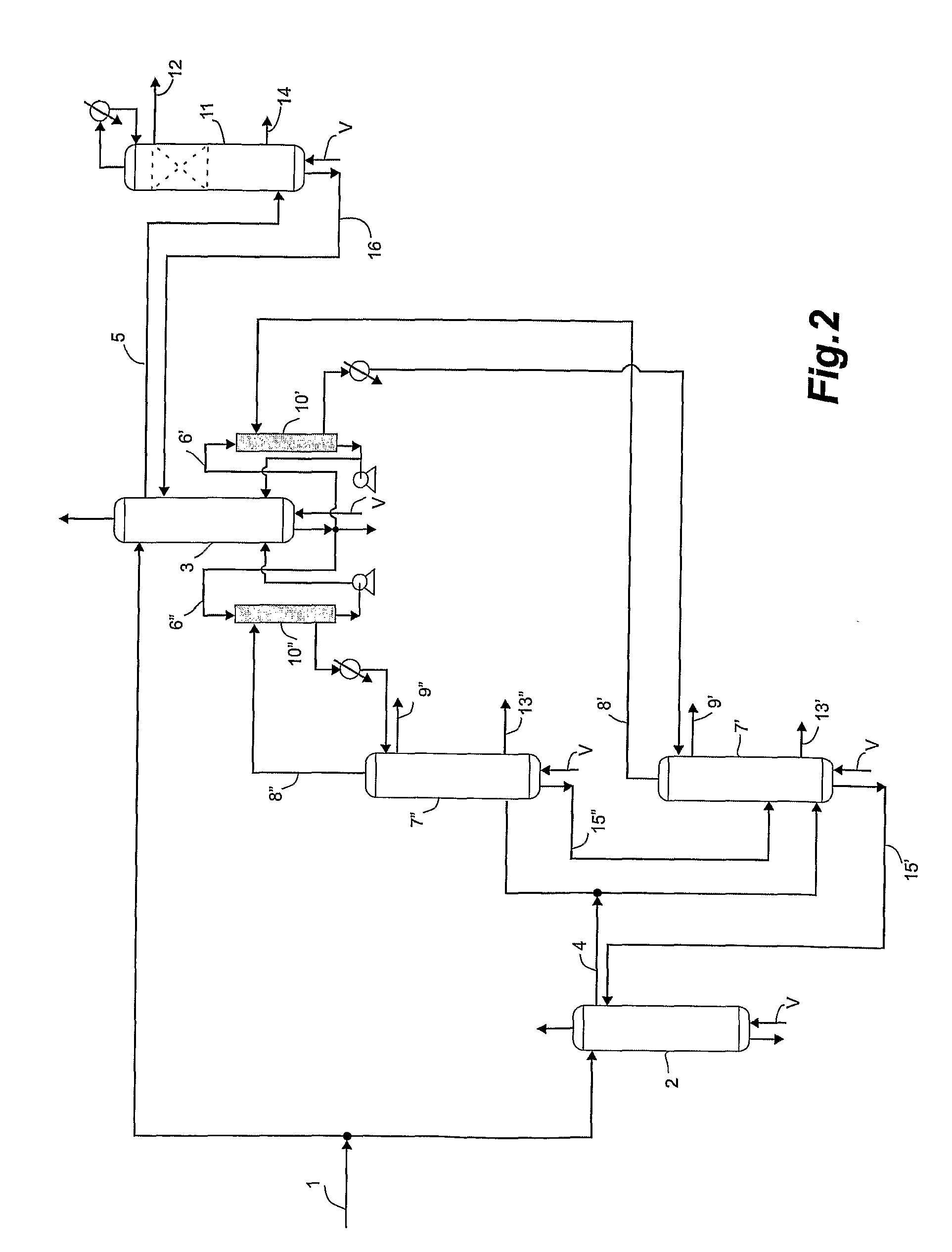Process and System for Producing Alcohol by Split-Feed Distillation
a technology of split-feed distillation and process, applied in vacuum distillation separation, separation process, food shaping, etc., can solve the problems of special care and achieve the effects of low pressure, low head loss, and high consumption reduction
- Summary
- Abstract
- Description
- Claims
- Application Information
AI Technical Summary
Benefits of technology
Problems solved by technology
Method used
Image
Examples
Embodiment Construction
[0025]The present invention relates to a process and a system for producing alcohol by distillation with energy optimization using split-feed technology.
[0026]The process of the present invention comprises the steps of:[0027]a) splitting a stream of wine 1 to feed two depuration columns 2 and 3, the depuration column 2 generating a stream of phlegma 4 and the depuration column 3 generating a stream of phlegma 5 and a stream of vinasse 6;[0028]b) feeding the stream of phlegma 4 into at least one rectification column 7 generating a top flow 8 and a stream of hydrated alcohol 9;[0029]c) effecting the heat exchange between the top flow 8 from at least one rectification column 7 and the stream of vinasse 6 from the depuration column 3 in at least one heat exchanger 10; and[0030]d) feeding the stream of phlegma 5 into a rectification column 11 generating a stream of hydrated alcohol 12.
[0031]Therefore, the system of the present invention comprises:[0032]a) a depuration column 2 receiving ...
PUM
 Login to View More
Login to View More Abstract
Description
Claims
Application Information
 Login to View More
Login to View More - R&D
- Intellectual Property
- Life Sciences
- Materials
- Tech Scout
- Unparalleled Data Quality
- Higher Quality Content
- 60% Fewer Hallucinations
Browse by: Latest US Patents, China's latest patents, Technical Efficacy Thesaurus, Application Domain, Technology Topic, Popular Technical Reports.
© 2025 PatSnap. All rights reserved.Legal|Privacy policy|Modern Slavery Act Transparency Statement|Sitemap|About US| Contact US: help@patsnap.com


